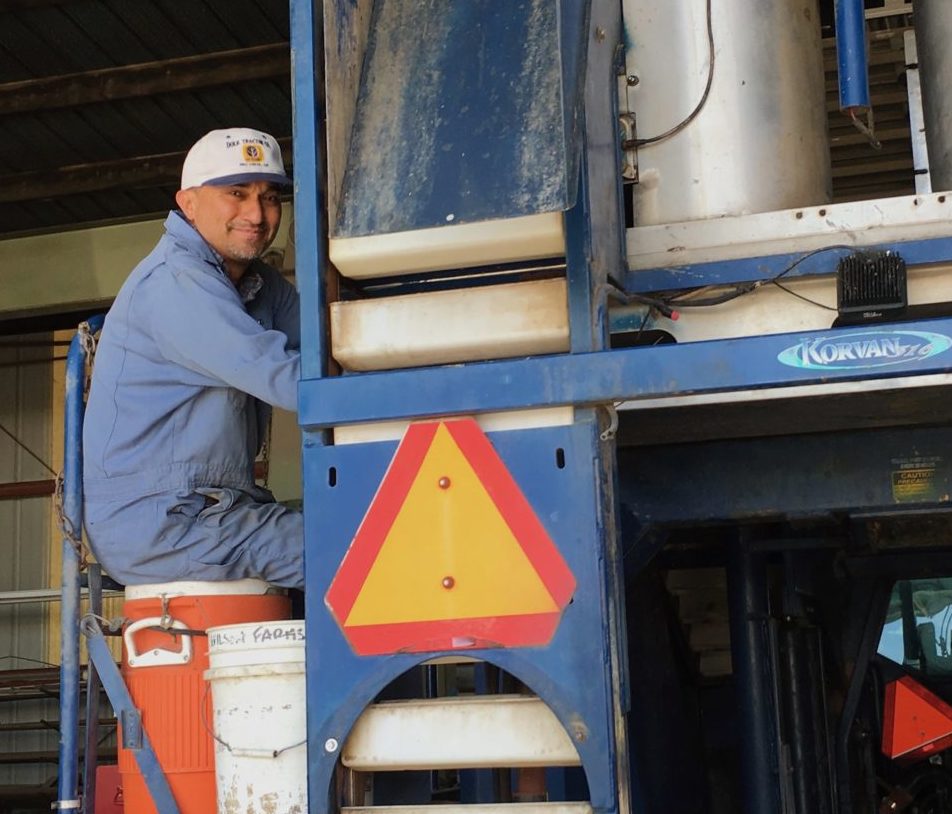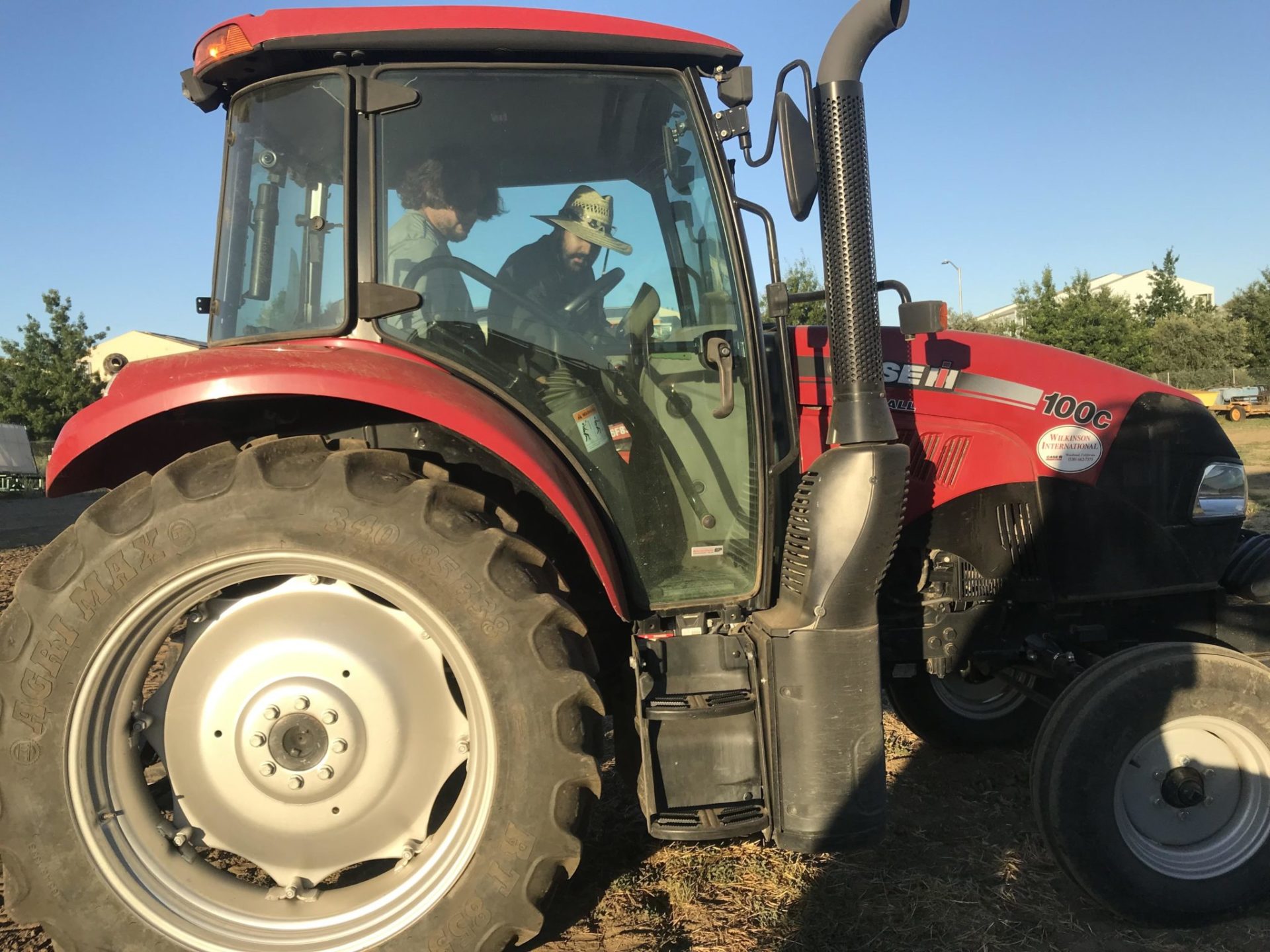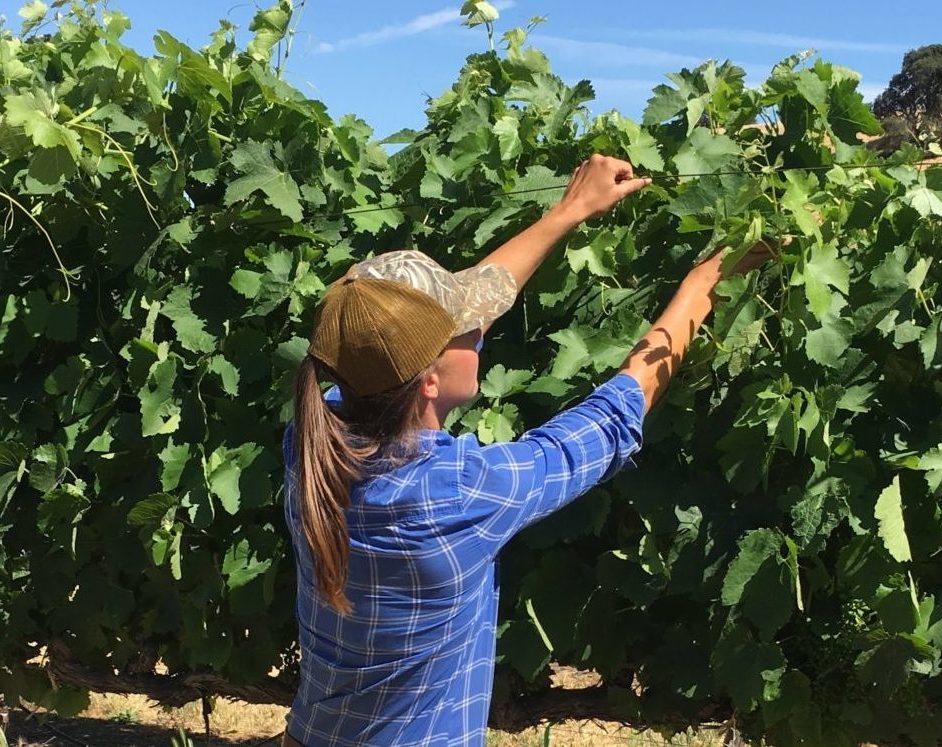
With rising wages and growing labor shortages, farmers are faced with difficult decisions as the older generation of their workforce retires. As if finding labor wasn’t hard enough, finding skilled workers to take on essential positions such as management is proving more difficult and time consuming. This was the challenge David Ogilvie at Wilson Vineyards was facing when he realized his labor manager would be retiring soon, and he needed to start training someone to take his position. One employee stood out as a possible replacement but he would need some training before they could advance.
Ogilvie and his employee Enrique Navarro discovered a local apprenticeship program that provided training and curriculum to equip Enrique with necessary skills for management. The Beginning Farm and Ranch Management Apprenticeship Program was developed by the Center for Land-Based Learning in 2017 to address the shortage of highly skilled workers in farm management. While agricultural apprenticeships have been a tradition throughout the nation as a way for beginners to learn the ropes of agriculture, this is the first registered apprenticeship for ag management in California and has been approved by the California Division of Apprenticeship Standards.
The Center for Land-Based Learning connects pre-screened, qualified individuals with experienced farmers for on-the-job training and mentorship, with the goal of post-apprenticeship employment—ideally into some type of management position on the farm. In addition to enrolling current employees, farmers can also choose to hire a new employee from a competitive pool of applicants. Program staff review applications to filter for highly qualified candidates with transferable skills that will benefit the farm operation. Farmers then choose who they would like to interview and hire. The apprentice starts at minimum wage and receives a $.50 promotion every six months as long as program requirements are being met.
Enrique became an apprentice in the Beginning Farm and Ranch Management Apprenticeship Program in 2018 after working at Wilson Vineyards for 20 years. Enrique’s main responsibilities were as a tractor driver for harvest and doing equipment maintenance in the shop. But David saw more potential in him. Enrique held the respect of his coworkers, was curious but not pushy, and was reliable. David saw that Enrique had the character, intelligence and temperament to be a manager, but he needed to expand his understanding of the farm operation, practices and business decisions. The Apprenticeship Program offered Enrique a unique opportunity to gain these skills and other fundamental experiences needed to be a successful manager. As the employer, David could further invest in someone who already knew his operation instead of looking for a new labor manager in the future.
The program, which takes roughly two years to complete, provides apprentices with the fundamentals of agriculture in California and requires 3,000 hours of on-the-job training and 250 hours of coursework. The program tries to meet the educational needs of both apprentice and employer. If the apprentice already has the basics of plant science, soil science, and pest management down, topics can be more tailored to their needs. On-the-job training gets them hands-on experience with things like tractor skills, tree care, irrigation, and even requires them to gain experience with regulatory paperwork, among other things. Some coursework is also individualized to meet the apprentice’s career goals. This could look like the Leadership, Management and Best Practices Program that Enrique took through the Napa Valley Farmworkers Foundation.
Enrique graduated from the program in February of 2020 with a journeyworker card certifying him as a Beginning Farm and Ranch Manager. Now he continues to work on David’s farm to further refine his skills as he gears up to transition to management when the current manager retires. Of the many things he learned throughout the program, Enrique noted marketing and soil health as among his favorite topics. He had never thought about microbes or nutrients in the past and he really enjoyed learning about soil texture by doing a ribbon test to evaluate the soil.

For David, participation in the program meant that he needed to provide Enrique with a diversity of tasks outside of his usual role so that he could gain exposure in all aspects of the operation. David received support from program staff to ensure that Enrique acquired hands-on work experience in different competency areas. Program costs aside from hourly wages were also covered. While some apprenticeship programs require employers to pay for the training curriculum, the Center for Land-Based Learning has procured funds through 2021 to pay for any tuition.
Other farms that have mentored apprentices include Rominger Brothers Farms in Winters, Soil Born Farms in Rancho Cordova, Full Belly Farm in Guinda, SB Voelz Farming, Inc. in Dunnigan, and Blue House Farm in Pescadero. The program is currently focused in the Central Valley but is looking to expand across the state with future developments. This would include making curriculum available at community colleges and online. While coursework is currently only offered in English, Spanish or bilingual versions are also being discussed for the future.

The program is also looking to add new occupations in addition to the Beginning Farm and Ranch Manager. Through a partnership with the nut industry, the Center for Land-Based Learning is exploring essential roles at all levels of orchard and processing operations to determine if an apprenticeship pathway would be beneficial in growing a pipeline of workers for any of these positions. This would also allow current employees the opportunity to master a range of new experiences and be promoted to higher-skilled jobs.
For now, the hardest challenge has been recruiting growers to take on an apprentice. While it would be great to enter into retirement knowing the operation has an accomplished team, the prospect of mentoring sounds like a lot of work that farmers just don’t have time for. But it actually isn’t much more than training a new employee, and program staff conduct the initial recruitment. More than adding a dynamic leader to the team, participating in programs like this provides a much needed space for new beginners and aspiring farmers to grow. After all, there is no better way to learn than from the experience and knowledge of seasoned farmers.
Nut growers and processors can help the Center for Land-Based Learning determine if an apprenticeship pathway would be a viable option for other positions in the industry by filling out a Nut Producer Survey at http://www.surveymonkey.com/r/NutLaborSurvey.
About the Center for Land Based Learning: The mission of the Center for Land-Based Learning is to inspire, educate and cultivate future generations of farmers, agricultural leaders, and natural resource stewards. Combining innovative hands-on experience with classroom learning, participants in Land-Based Learning programs develop leadership skills, learn how sustainable agriculture practices contribute to a healthy ecosystem, and create connections to agricultural, environmental, and food system careers. For more information, visit www.landbasedlearning.org















